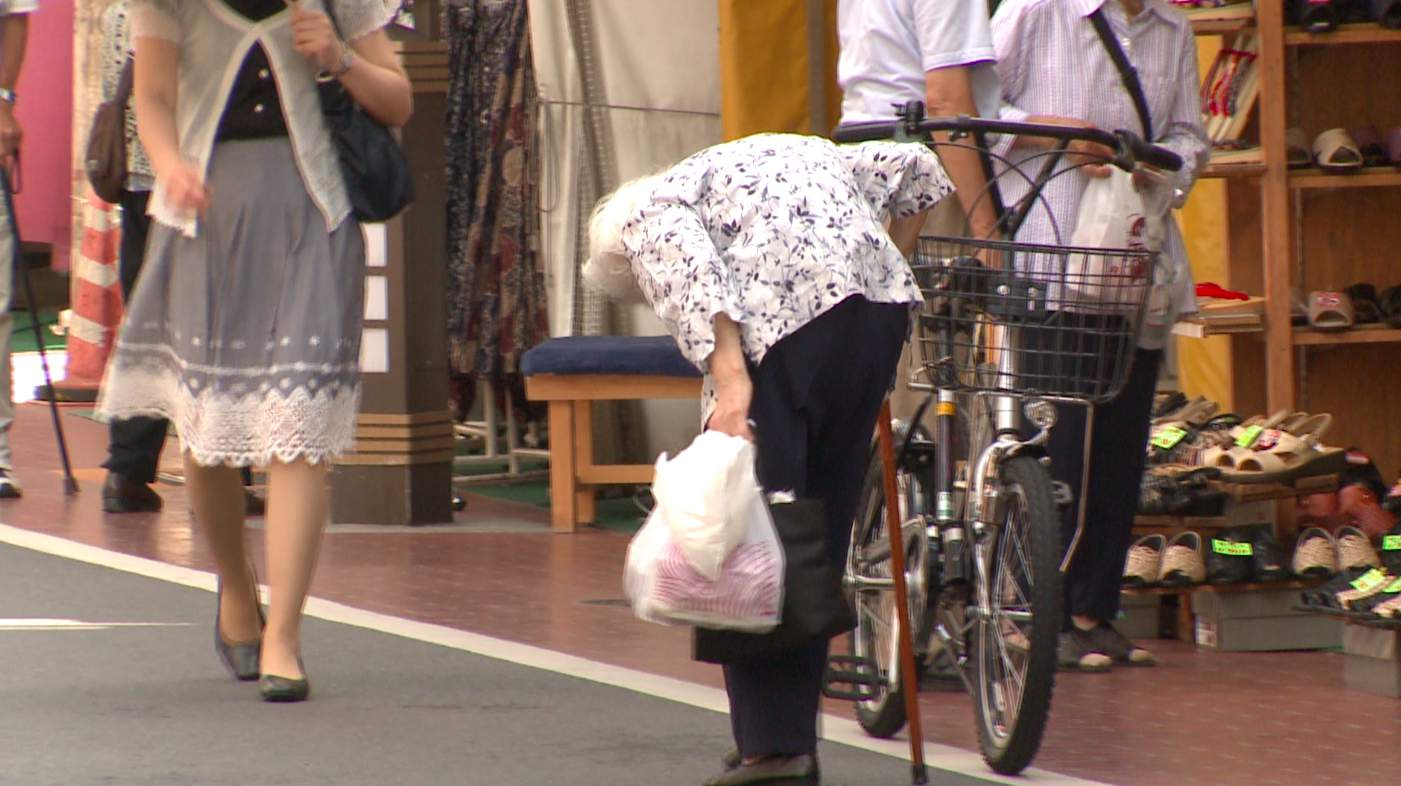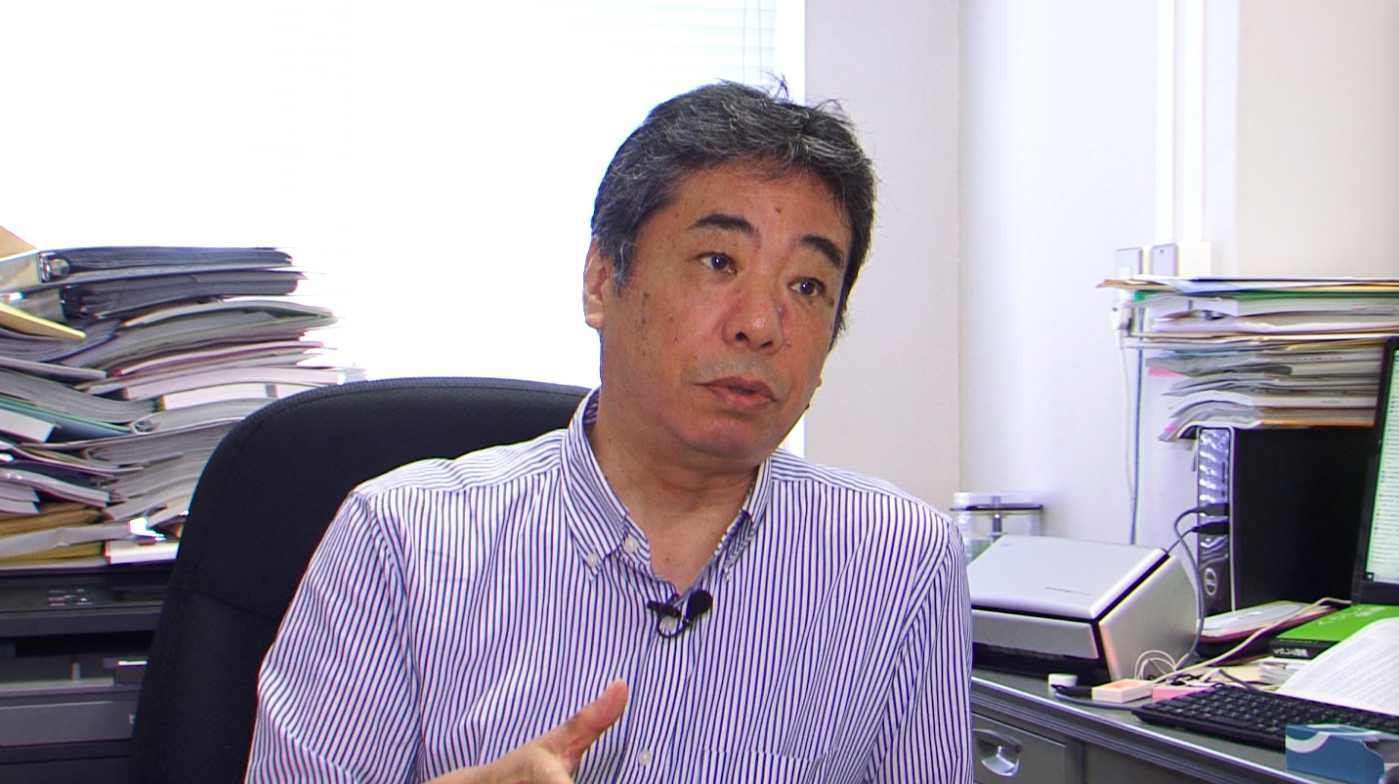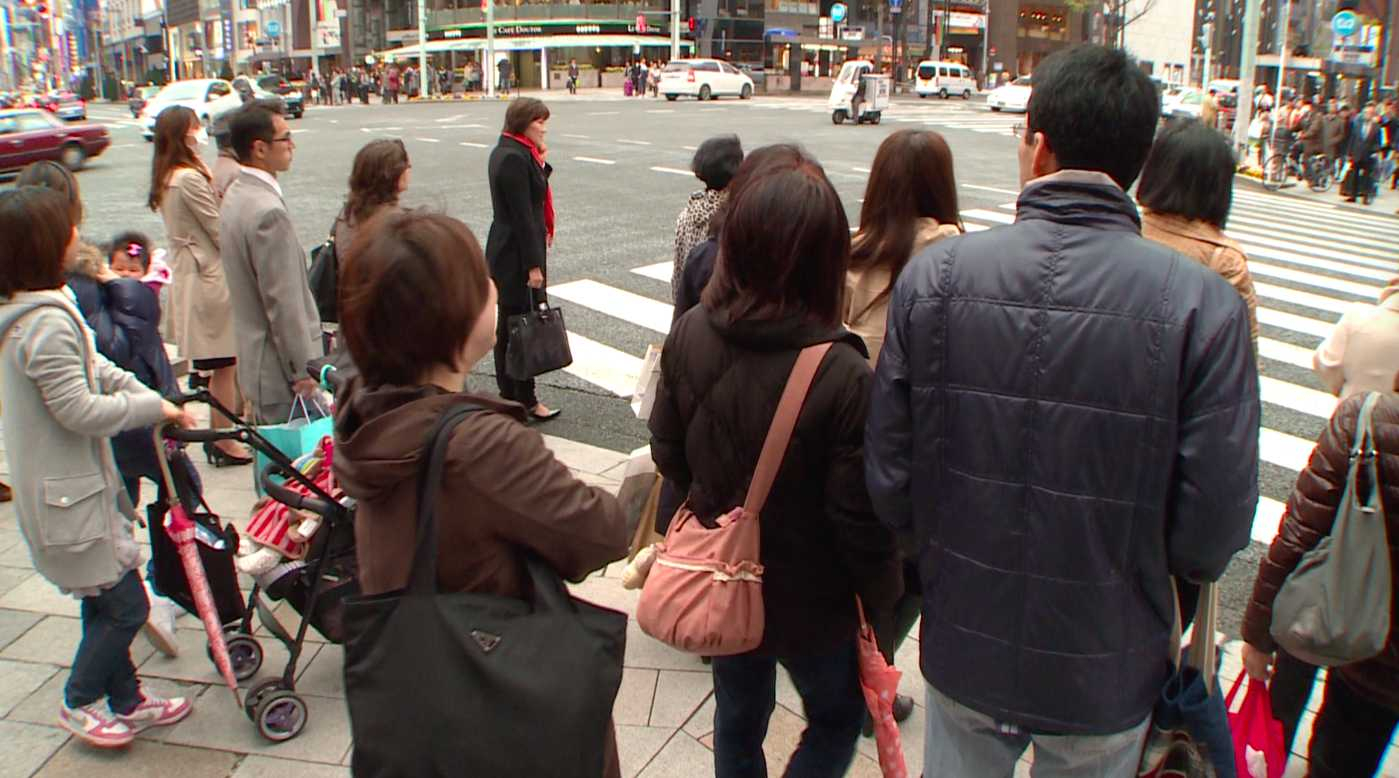

For decades Japan has struggled with an aging population and declining birth rate. Despite almost two and a half decades of government efforts in trying to turn the tide, Japan's demographics have turned from bad to worse.
Administrations have tried every means from childcare subsidies and improving women's working environments to boost the birthrate, but the effect has been minimal as Japan's economy has stagnated.
Meanwhile, the government has had to raise consumption tax twice to cater to the increasing social care costs, from the fast-aging society.
An extra burden for young families discouraged many from having more than one child due to the grim economic outlook.

With declining birth rates and the world's highest life expectancy, Japan's old-age dependency ratio is set to rise rapidly. /CGTN Photo
With declining birth rates and the world's highest life expectancy, Japan's old-age dependency ratio is set to rise rapidly.
Japan has now entered the so-called super-aging society, where almost a third of the population are 65 and above. Nearly 15 percent of the population are over 75.
Elderly citizens now have fewer people to rely on for economic output, tax revenue, as well as physical and emotional care.
One-point-eight people aged 25 to 64 have to support each person aged 65 and over.
Moreover, many people are forced to quit their jobs to take care of their old family members, further reducing tax revenues. Some worry about a possible financial collapse.

Professor Hisakazu Kato from Meiji University during an interview with CGTN. /CGTN Photo
Japan's demographic challenges pose as an obstacle to Prime Minister Shinzo Abe's efforts to reignite economic growth. They also put a strain on social security programs. Some analysts say raising the consumption tax in October is merely a temporary solution.
Professor Hisakazu Kato from Meiji University said, "We cannot deny the possibility of a financial collapse, but it will be manageable with the right policy."
Although he cautioned that drastic policy might damage already strained fiscal health.
"Some economists suggest we should increase fiscal spending to revive the economy, but we do have to be careful in maintaining fiscal consolidation to prevent a financial collapse," Kato said.
Moreover, some public feel that social security programs are stretched thin.
Younger generations are worried that they, in turn, may not be able to receive pensions when they grow old, as the budget for nursing care is expected to climb to 20 trillion yen and more while the population is rapidly decreasing.
"I think the current pension schemes are sustainable as long as people pay diligently. It may be lower than one might hope, but there's still a prospect of getting a pension," Kato said.

It is essential for Japan's young generation to pay social security to sustain the current pension system, says Professor Hisakazu Kato from Meiji University. /CGTN Photo
Many people are reluctant to pay social security, believing that they will be better off saving for their retirements.
Kato said it is essential for the young generation to pay social security to sustain the current system. However, there is no denying that one has to look after their aging as well.
"Each person also has to think about personal savings for their retirement as well," Kato said.
Experts say strengthening the labor force is essential. Japan's labor force is expected to decrease rapidly.
A government report shows that, by 2060, the labor force will go down to 37 million people from its current 65 million people.
Japan already can no longer rely on debts to support social security expenses. The country's national debt is short of one trillion U.S. dollars, equivalent of every Japanese national having a 75,000-U.S.-dollar debt.

Copyright © 2018 CGTN. Beijing ICP prepared NO.16065310-3
Copyright © 2018 CGTN. Beijing ICP prepared NO.16065310-3